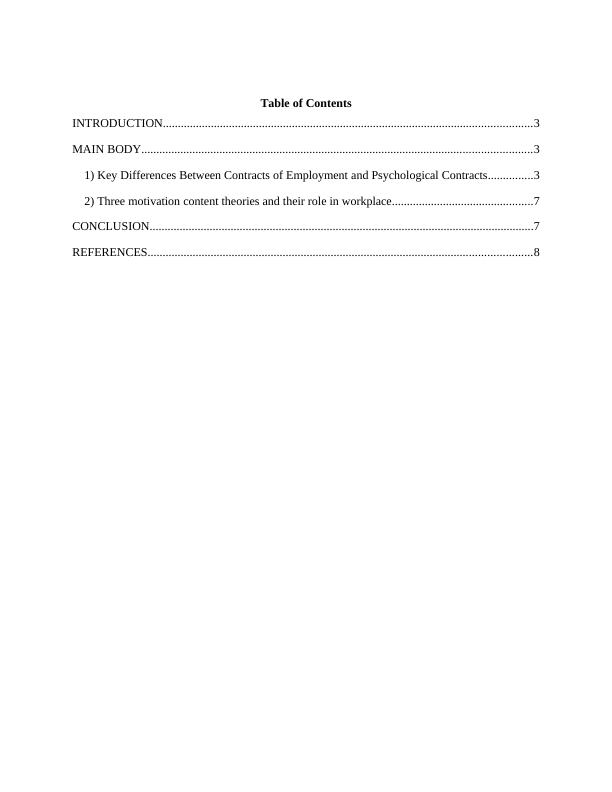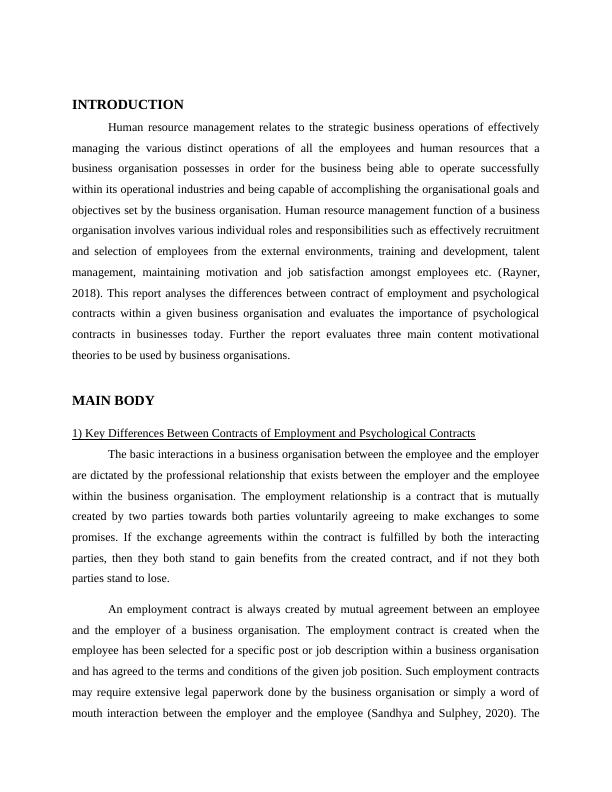Differences Between Contracts of Employment and Psychological Contracts
Added on 2023-01-09
16 Pages3853 Words21 Views
End of preview
Want to access all the pages? Upload your documents or become a member.
Introduction to Human Resource Management & Learning and Talent Development Assessment 2020
|8
|2145
|37
Psychological Contract and its Importance
|12
|3944
|52
Psychological Contract
|6
|1332
|68
Contract Law: Essential Elements, Counter Offer, Remedies and Rights
|7
|2002
|491
Managing HR Services : Assignment
|11
|2987
|250
Flexible Working & the Psychological Contract Report 2022
|8
|2004
|49



